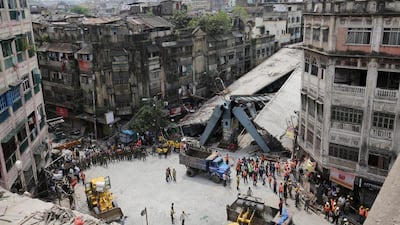India’s sprawling cities are in desperate need of infrastructure development. Such developments will help the private sector remain nimble in the global economy. Enabling the private sector with dependable urban infrastructure has proven benefits around the world. With more people than ever living in cities, governments can’t afford to remain behind the curve of the urbanism debate. Yet, the Indian government has failed to recognise the link between smart urban infrastructure and the growth of the private sector.
Last week, at least 20 people were killed when a flyover collapsed in the busy city of Kolkata. Critical work on the flyover had been delayed for several years. This is not the fault of a handful of individuals – although the Indian police have detained five people at the company responsible for building the flyover – but the failure of an overall approach to urbanism in India.
Indian prime minister Nerandra Modi has promised to root out corruption and excess bureaucracy in the government but has failed to adequately divert resources to growing cities. The government must play a major role in managing the growth of cities through investments in infrastructure such as better roads and commuter connectivity. From Medellin to Melbourne, investments in urban planning have resulted in stronger private sectors. The better the infrastructure, the better the private sector will be able to take advantage of it to encourage growth.
Given the size of India’s cities, there are myriad initiatives that can be tested out that extend beyond the creation of safer roads and flyovers. No one is under any illusion that India’s cities will stop growing at historic rates, so safety advancement is essential. What politicians are failing to fully comprehend is the overall positive effect that these advancements will have on the economy.
As such, infrastructure should be as much of a priority as balancing the budget and rooting out corruption. It is a prudent measure that will pay dividends to society for generations to come.

